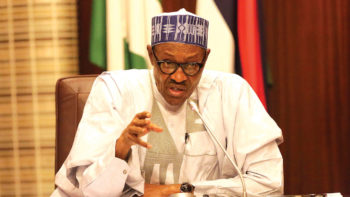The Federal Government on Wednesday said it would determine the size of the loan it is expected to take from the World Bank only when the 2017 budget is passed into law and that President Muhammadu Buhari will be launching an economic recovery plan soon
This was even as it had also started the process of fine-tuning the Economic Growth and Recovery Plan, EGRP.
It will be recalled that FG started the loan process to finance the 2016 budget deficit but stop mid day.
The government in 2017 renewed interest in the loan but said the amount to borrow would become clearer only when the year’s budget is passed into law as the funds would be used to finance the 2017 budget deficit.
Fielding questions from State House Correspondents at the end of the Federal Executive Council (FEC) meeting at the presidential Villa, Abuja, the Minister of Budget and National Planning, Senator Udo Udoma said the figure of the loan was dependent on the amount the National Assembly would approve in the fiscal document.
“The figure will depend of the (2017) budget approved by the National Assembly,” he said.
Meanwhile, briefing newsmen earlier on what transpired at the FEC meeting, the Minister said the Council deliberated extensively on the Economic and Recovery Growth Plan.
The plan is expected to be launched soon by President Muhammadu Buhari.
“We had extensive discussion on Economic Recovery Growth Plan (ERGP). The growth plan is still being fine-tuned. But a lot of inputs were made by Council members and it is virtually ready for the President to launch. However, we are doing some fine-tuning and during this period we also do some final consultation before the president launches the plan.
“The plan that is being approved is expected to drive economic recovery and lay the foundation for longer economic growth as well as improve the competitiveness of the Nigerian economy.
“The goal of the plan is to have an economy with low inflation, stable exchange rate and a diversified inclusive and sustaining growth.
“The proposed initiatives outlined in the plan are designed to address the country’s poor competitiveness, improve the business environment and attract investment and infrastructure, especially power, roads, rails and ports. Jobs and social inclusion are also key focused areas of the plan,” he said.
He also stated that the immediate execution priorities of the plan include “agriculture and food security; energy, particularly power and petroleum product sufficiency; industrialization – focusing on small and medium size enterprising; transportation which is very, very important as an infrastructure requirement to get the economy really moving; and stabilization of the micro-economic environment.”
